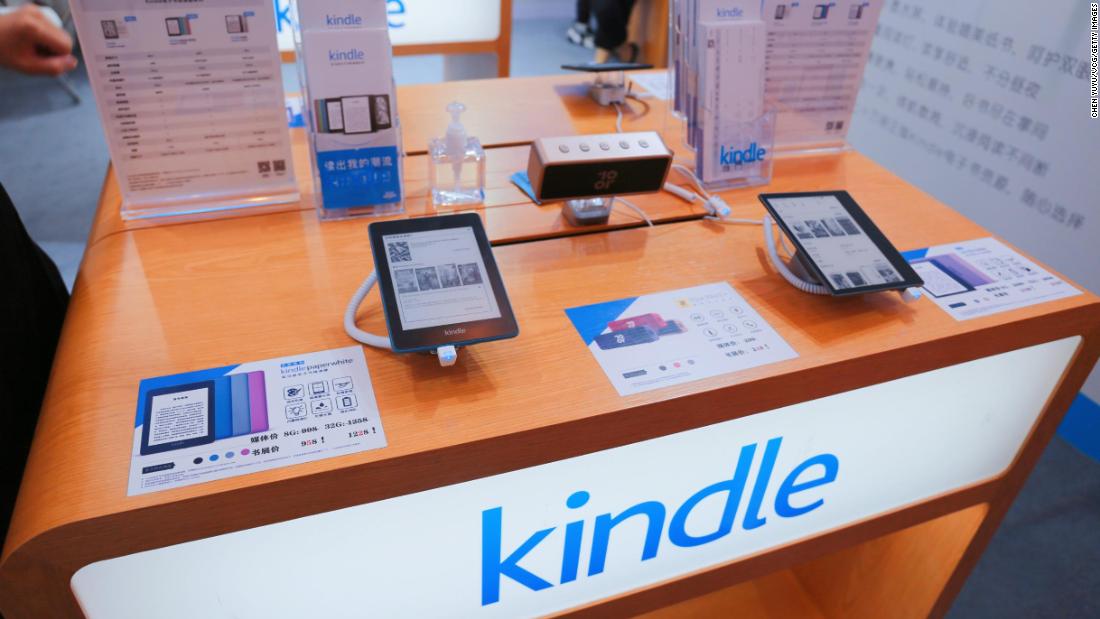The company announced on Thursday that from July 2023, Kindle users will no longer be able to buy books online in the country.
“Amazon China’s long-term commitment to its customers will not change,” the Seattle-based company said in a statement. “We have established an extensive business base in China and will continue to innovate and invest.”
Amazon first entered mainland China in 2004 by acquiring Joyo.com, a major online seller of books, music and videos in the country.
Since then, it has had limited success in the vast market. In 2019, the company shut down its local online marketplace in China, meaning customers were no longer able to purchase goods from Chinese suppliers.
Amazon continues to operate an online store in China enabling ‘overseas’ shopping, the company noted in its statement Thursday, in addition to logistics, cloud services and advertising businesses.
— CNN’s Shawn Deng and Ziyu Zhang contributed to this report.

